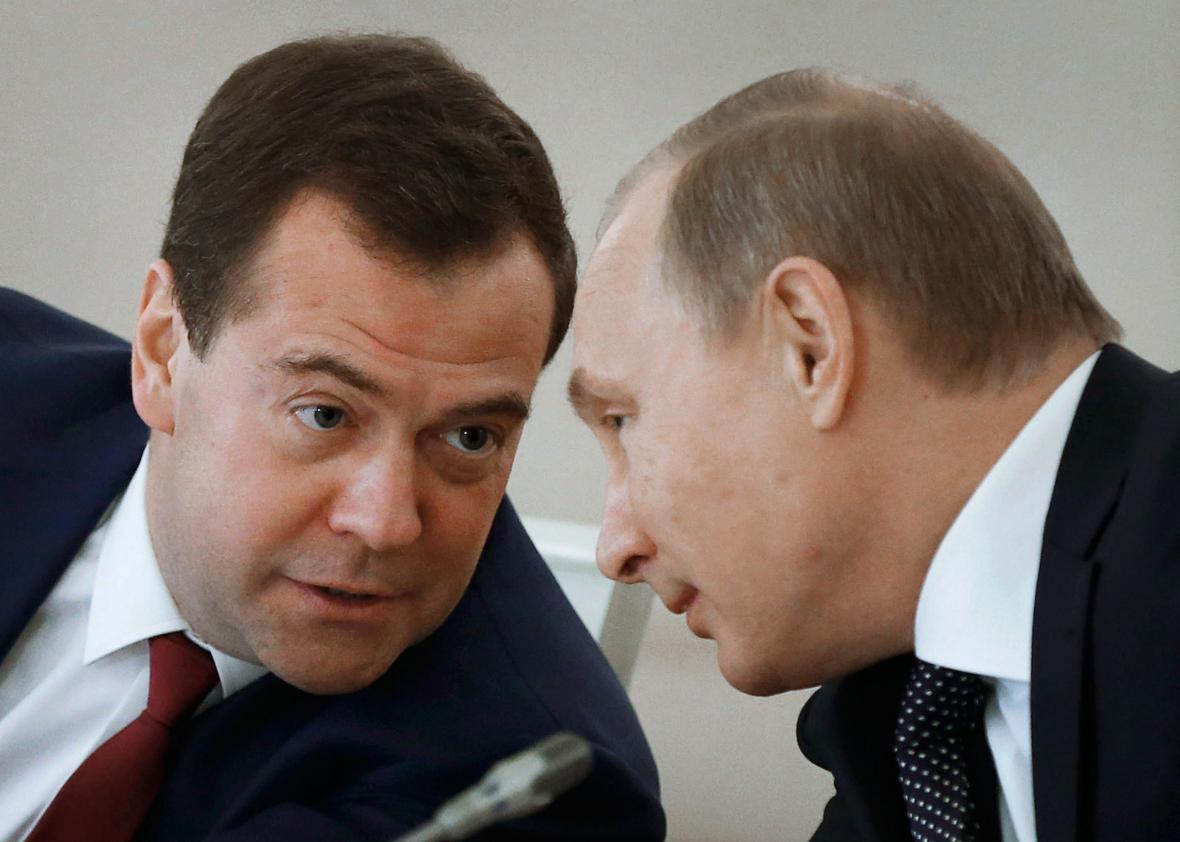The Russian government is finally coming around to the emerging consensus that last week’s crash of a Russian passenger jet in Egypt was likely caused by a bomb. “The possibility of an act of terror is of course there as the reason for what happened,” Prime Minister Dmitry Medvedev told the newspaper Rossiyskaya Gazeta on Monday.
That’s not as confident as the statements made by U.S., British, and international investigators that a bomb likely caused the crash, but it goes beyond the previous discussion of the crash by Russian officials and media outlets, which downplayed the likelihood of a terrorist attack, even as President Vladimir Putin suspended Russian flights to Egypt. The one holdout is the Egyptian government, which still maintains that it’s too early to form a “hypothesis” about the crash. The reluctance is understandable as thousands of foreign tourists flee the country. It’s been a tragic and devastating few months for Egypt’s economically crucial tourist industry, which is still reeling from the accidental killing of eight Mexican tourists by security forces in September.
The question now is whether Russia will get tough on ISIS, whose Sinai affiliate has taken credit for the crash, as a result. (While international investigators seem pretty confident that the plane was bombed, they haven’t attributed responsibility yet.) Despite Putin’s stated goal of crushing ISIS as his reason for being in Syria, Russian airstrikes there have mostly focused on other anti-Assad rebel groups so far, but one U.S. intelligence official told the Daily Beast, “I suppose now he’ll really let ISIS have it. This should be fun.” But it might not be as “fun” as this intelligence official thinks given that the Russian government has taken this long to even acknowledge terrorism as a possible cause and that the acknowledgment came from Medvedev rather than Putin.
This is very different from how the Russian president has handled terrorist incidents in the past. Since he emerged on the Russian political scene, aggressive demonstrations of resolve in response to the threat of terrorism have largely defined Vladimir Putin’s career. This is a leader who, as Boris Yeltsin’s prime minister in 1999, famously warned Chechen militants that he would “waste them in the outhouse” if necessary. A series of apartment bombings in Moscow that same year was used as a pretext to launch a bloody war in Chechnya, though questions about who was really behind them persist to this day. After devastating terrorist attacks like the Moscow theater siege of 2002, the Beslan school massacre of 2004, and the Domodedovo Airport bombing of 2011, Putin has always vowed swift retribution against the perpetrators, and despite questions about the handling of those responses, the public has generally stood behind him.
This time, though, the perpetrators are not Chechen militants within Russia’s own borders but a foreign group, likely responding to Russia’s recent actions in the Middle East. While Russians have been willing to endure bloodshed and sacrifice in order to pacify the Caucasus or even defend Russian interests in Ukraine, they may have hoped the Syria intervention was a relatively low-stakes venture to project Russian power, counter U.S. ambitions in the Middle East, and protect a loyal ally in Bashar al-Assad. If ISIS really was behind the bombing, it suggests the costs of Putin’s Syrian adventure may be a lot higher than anticipated. This suggests Russia’s leaders may try to move past the incident as quickly as possible rather than retaliate for it.
